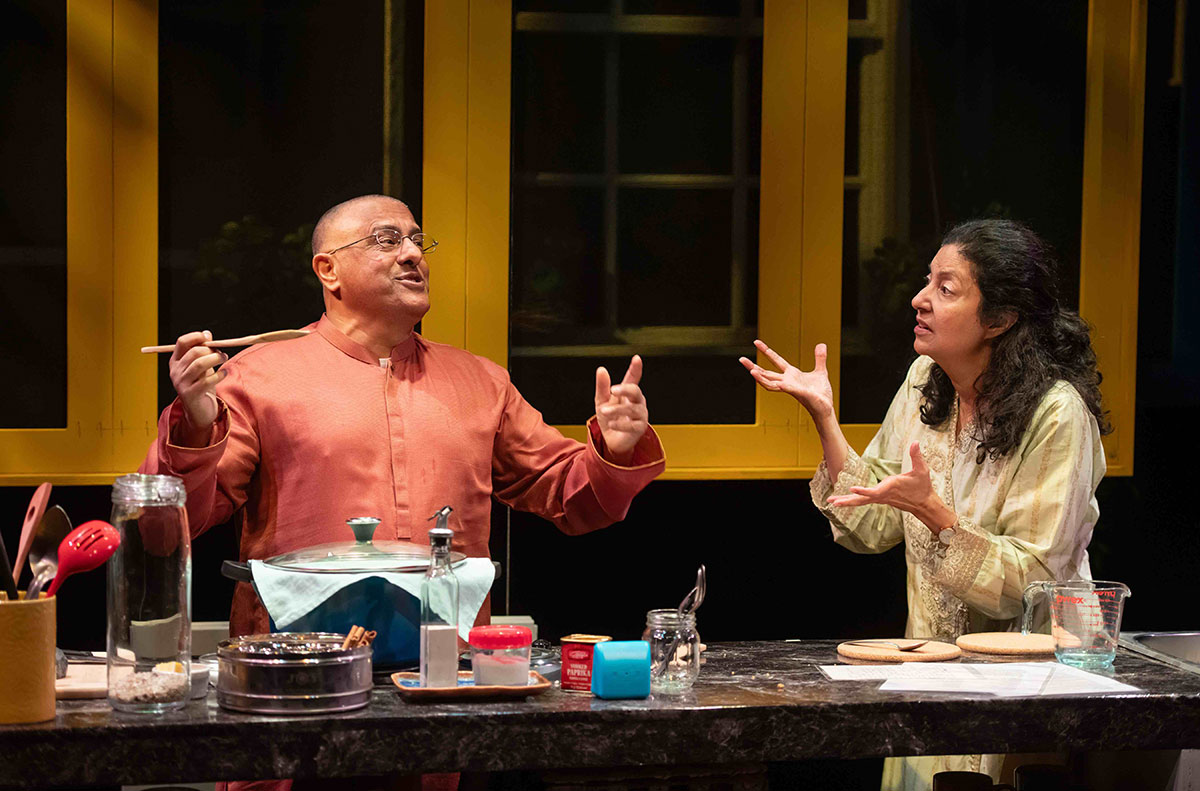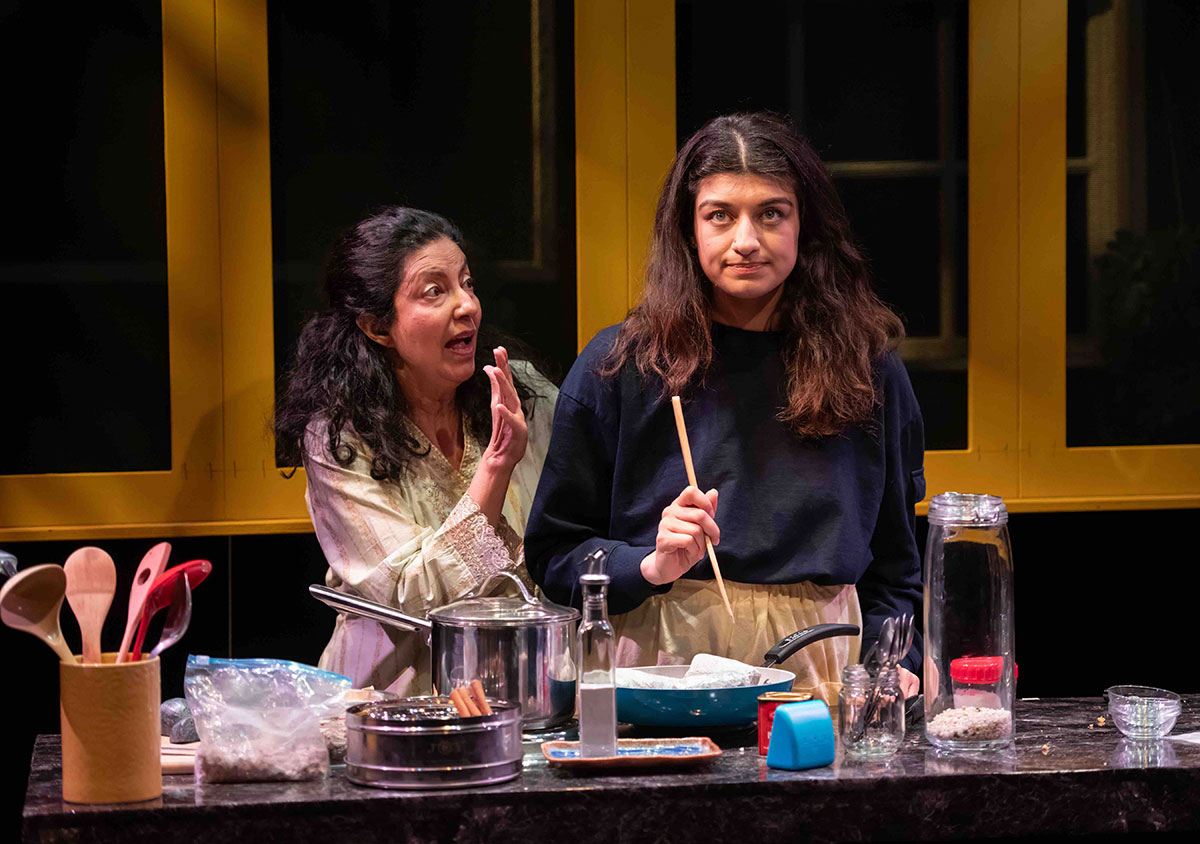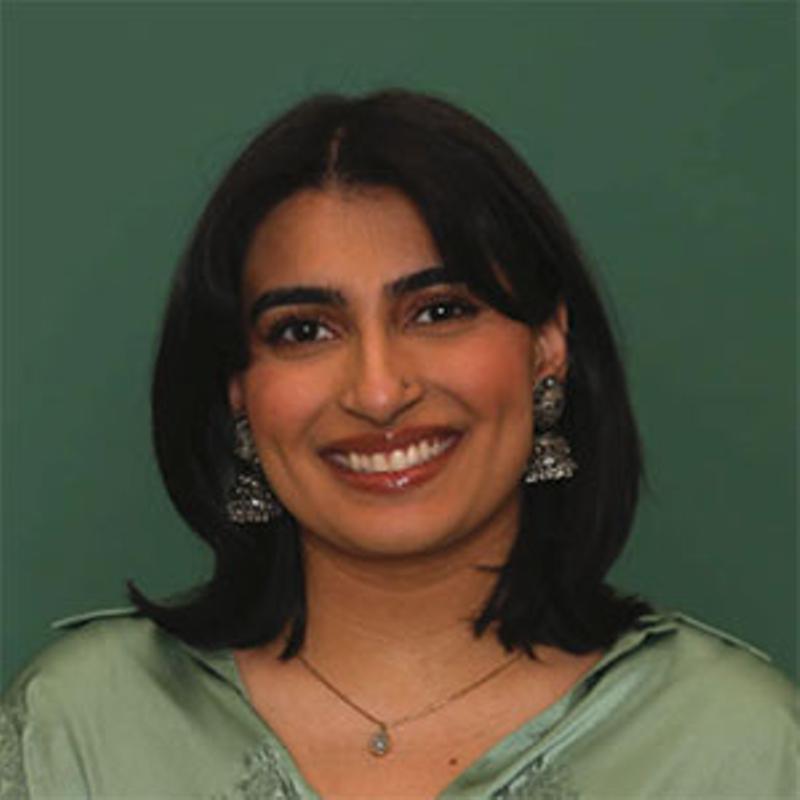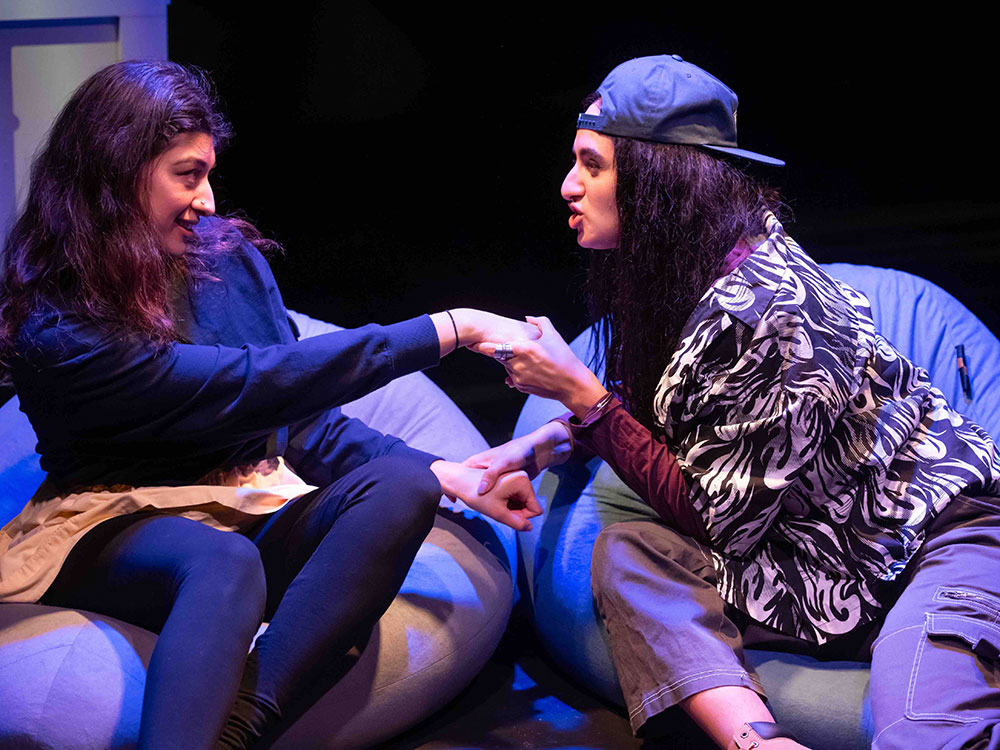There are few things in this world as precious as making food for the people we love. That is, of course, when the possibility of a future life partner doesn’t depend on it.
Showing at the Presentation House Theatre in North Vancouver until March 31, 25-year-old Toronto-based playwright Lee Nisar’s Dil Ka is set in a Pakistani-Canadian home where 26-year-old Zahra (played by Talia Vandenbrink) frantically tries to make chicken biryani in the hopes of impressing the family of a potential suitor.
As her well-intentioned, sometimes chaotic family interjects with advice about her cooking and her approaches to dating, Zahra is confronted with her own truth: a marriage with a man may not be what she wants after all.
Utilizing a confessional narrative style, Zahra candidly unpacks the pressures, expectations and desires she’s navigating through the lens of emerging acceptance for her own queerness.
Where the kitchen is often framed as constrictive space for South Asian women, Dil Ka presents it as one of the only spaces where Zahra is comfortable reflecting honestly on her life and identity.
“I was interested in exploring how [the kitchen] can feel very imposing and lonely at times, but [it can also] be a freeing space where men are not traditionally always allowed,” Nisar explains. “It's a space where you can be yourself and I wanted to explore that but in relation to queerness.”
As Zahra’s belief in her ability to cook a decent pot of biryani falters, so does her faith in the stories she’s been told about what it means to be a “good Muslim girl.” As South Asian representation steadily rises in mainstream media and culture, Nisar attentively portrays Zahra’s parents with care and complexity while highlighting cultural differences between generations.
“I find a lot of brown writers and comedians rely on stereotypes and throwing our elders under the bus to get laughs from a white audience,” Nisar says. “That's a way that we have unfortunately been forced to survive, but also I think it's time we break out of that.”
Dil Ka, an Urdu phrase meaning “from the heart,” is a tender, layered and humorous portrayal of the queer-Muslim-immigrant experience in Canada. Zahra’s journey reminds us it’s never too late to step into your truth and, most importantly, that you never know what might unfold when you try to make a good pot of biryani.
Ahead of Dil Ka’s final weekend at Presentation House Theatre, The Tyee caught up with Nisar to discuss food, family and the beauty of queer Muslim joy. This interview has been edited for length and clarity.
The Tyee: Dil Ka uses the kitchen as a site of emotional processing for Zahra, unpacking her social, cultural and religious experiences that have brought her to this crossroads. Why did you choose cooking as a vehicle for Zahra’s emotional journey?
Lee Nisar: When I first began writing [Dil Ka], I didn't actually have the kitchen in mind. But I had just moved to Toronto, and I was feeling very distant from my South Asian heritage.
A way that I was able to reconnect, not just with my culture, but with my family, was through talking about food and cooking together. [You] don't necessarily have to talk about emotionally weighted things. You can talk about what you're eating, the stories around food and that itself can be a way for connection to be formed.
Food is such a neutral ground where everybody can connect and come together. I tried to avoid cooking for a really long time just because I was like “I don't want to do the traditional thing.”
The kitchen is also such a gendered space. I was interested in exploring how it can feel very imposing and lonely at times, but a freeing space where men are not traditionally always allowed. It's a space where you can be yourself and I wanted to explore that but in relation to queerness.

I really appreciated the care that the play took in displaying multiple generations of this Pakistani family with humanity and complexity. What challenges did you face in portraying intergenerational tensions realistically without veering into stereotypes?
In my experience, most Pakistani elders are not the most accepting or open about [queerness], but a lot of them are. A lot of my friends that have been coming out to their parents and have had a lot of very pleasant surprises. So the parent characters in particular became a mesh of the experiences of people that I know.
I was still trying to make it realistic in the sense that they are immigrant parents, these are probably newer concepts for them. But I wanted their love for their children to come across above all else. We don't hear or see that a lot because of the intergenerational traumas of immigration and colonialism, but I wanted it to be a big part of the piece because we should see warmth from Pakistani parents as well.
Throughout the play, this idea of adhering to inherited cultural expectations comes up a lot. Why was it important to you to write a play that questions the desire to conform at the expense of Zahra’s truth?
In terms of South Asian culture, there is such a pressure to conform. Whether that's conforming to what your parents want, or your other family members, or even just the people around you. I had a lot of brown friends growing up, which I'm really grateful for, but a lot of them were straight. There can be an internal pressure that you put on yourself where you're judging where you are with the rest of your peers. Coupled with family expectations, it can be a lot.
In earlier iterations of the script, [Zahra] was a lot less conformist. I wouldn't say she's conformist now, but there was a deliberate decision to balance the love she has for her culture and her faith, while also still trying to reclaim and define that for herself.
How can we take things that may seem more conformist, like going to Islamic school or doing what a good Muslim child should do, and then turn it on its head? How can this actually be also coming from a place of love and genuine curiosity?
I was interested in that because we are seeing so much more South Asian representation now. But I feel like it can be black and white in terms of the “good brown kid” or the “bad brown kid.”

What does queer Muslim Joy look like? What does it mean to you?
I'm really glad you asked this question. If you had asked me this a year ago, my answer would have been different. And not as informed. [Growing up] in Ajax, [Ontario], I had a lot of brown Muslim people around me but not a lot of queer people. In Guelph, I had a lot of queer people around me, but they were all white. Since coming [to Toronto], I've finally been able to have queer brown friends, which has been so incredible.
To me, queer Muslim joy is about found family and chosen family as much as it is about more traditional aspects of family. It’s Ramadan now and I'm seeing posts about queer iftar or Ramadan parties. That's something as a kid I never thought was even possible. I really thought I was the only brown gay person in the world.
It’s also finding the courage to make our own decisions and educate our elders and hopefully have them transform into allies as well. That's where I find the most queer Muslim joy.
What do you ultimately hope audiences take away from this show?
I hope audiences take a lot of laughter from it. As much as some of the subject matter is more serious, I hope they take some joy from it. I hope they are curious to learn more about their own family recipes, heritage and why their family members do things a certain way. Maybe they’ll be inspired to try to make biryani themselves.
Specifically for the older conservative folks, I hope they're able to take away a new perspective. Here’s a convergence of identity that a lot of people don't want to think about, but they’re being confronted with seeing its joy, beauty and power.
I hope that [Dil Ka] changes attitudes out there. I also hope that queer brown people feel happy to see it. When I was making it, that was the primary audience. It was really important for me to just make it for other queer brown people.
Dil Ka is presented by Ruby Slippers Theatre in association with Presentation House Theatre and Blackout Arts Society. It is playing in North Vancouver until March 31. ![]()
Read more: Food, Gender + Sexuality

















Tyee Commenting Guidelines
Comments that violate guidelines risk being deleted, and violations may result in a temporary or permanent user ban. Maintain the spirit of good conversation to stay in the discussion and be patient with moderators. Comments are reviewed regularly but not in real time.
Do:
Do not: